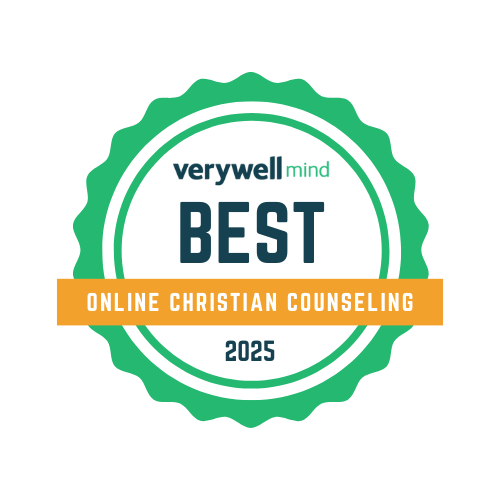 “When any real progress is made, we unlearn and learn anew what we thought we knew before.” Henry David Thoreau
“When any real progress is made, we unlearn and learn anew what we thought we knew before.” Henry David Thoreau
The bulk of my job as a counselor is helping people to unlearn behavior patterns and ways of communicating that are ineffective and sometimes, dangerous. My goal and desire is that everyone I work with would experience a renewing of their minds (Romans 12:2). Why? Because without renewal, we are left only with exhaustion and destruction. This scripture from Romans says that when our minds are refreshed, restored, and rejuvenated- we experience transformation!
To “unlearn” means to discard (something learned, especially a bad habit or false or outdated information) from one’s memory. How? Simply by practicing. Practice, though, is something that many of us struggle deeply with… I know I do!
What gets in the way of deliberate practice?
There are many barriers, but I think for me, I often catch myself trying to be motivated by deficits, negatives, guilt, or fear. Take my advice… these things are horrible motivators.
Once the initial enthusiasm of a “new thing” has worn off, I skip a couple days at the gym here, I procrastinate on some homework there, and before I know it… the habit I was trying to create is derailed. This only brings a greater sense of failure and defeat. My “your not good enough” lie gets reinforced and more difficult to challenge with each failed attempt at something I am trying to practice. This is the very thing we must “unlearn.”
Ask yourself this question: “What values or passions are driving me as I take on this task?” We must stop allowing fear and guilt to prevent us from God’s best for our lives! I have to unlearn my “negative motivations” and begin the practice of value-driven motivation. So, how do we identify our values and passions to challenge these false motivators? One of our counselors (thank you Trudi Beck) adapted the work of Russ Harris and created this great exercise! Start “undoing” by inviting God into the search for your values and attacking the goals and challenges before you with a corrected and healthy motivation. Take time to walk through this exercise on your own!
As you start this exercise, it may be a good idea to have some sort of journal, notebook or folder to keep all of the ideas and exercises in for this homework assignment. This will be an on-going assignment that will take several sittings to finish. How much time you wish to devote is up to you.
Here’s a brief statement about values:
“Deep down inside, what is important to you? What do you want your life to stand for? What sort of qualities do you want to cultivate as a person? How do you want to be in your relationships with others? Values are our heart’s deepest desires for the way we want to interact with and relate to the world, other people, and ourselves. They are leading principles that can guide us and motivate us as we move through life.
Values are not the same as goals. Values are directions we keep moving in, whereas goals are what we want to achieve along the way. A value is like heading North; a goal is like the river or mountain or valley we aim to cross whilst traveling in that direction. Goals can be achieved or ‘crossed off’, whereas values are an ongoing process. For example, if you want to be a loving, caring, supportive partner, that is a value – an ongoing process. If you stop being loving, caring and supportive, then you are no longer a loving, caring, supportive partner; you are no longer living by that value. In contrast, if you want to get married, that’s a goal – it can be ‘crossed off’ or achieved. Once you’re married, you’re married – even if you start treating your partner very badly. If you want a better job, that’s a goal. Once you’ve got it – goal achieved. But if you want to fully apply yourself at work, that’s a value – an ongoing process. ”
1. Review the list of values below. Next to each value, write the following based on how important each value is to you:
“V”–Very important “Q”–Quite important “N”–Not so important
If there is a value that you have that is not listed, add it to the bottom of the list.
2. After you have finished, write down all of the values that you have listed as “Very Important.” Then, narrow down that list–or combine if possible–to 3-5 Values that you believe are at the core of who you want to be. If there are more than five, that’s OK. This task is to get you to REALLY decide what is most important to you…the “why” in life that provides you with motivation, inspiration purpose and meaning making.
3. Write down each value on a separate page. Take your time, maybe address one value a day, and journal on WHY that value is important. Let yourself go deep. Also, explore what God says in the Bible about your value. Write down verses. Include other writings or supporting material that “speaks” to you about this value. Do this for EACH VALUE.
LIST OF VALUES:
Acceptance: to be open to and accepting of myself, others, life etc
Adventure: to be adventurous; to actively seek, create, or explore novel or stimulating experiences
Assertiveness: to respectfully stand up for my rights and request what I want
Authenticity: to be authentic, genuine, real; to be true to myself
Beauty: to appreciate, create, nurture or cultivate beauty in myself, others, the environment etc
Caring: to be caring towards myself, others, the environment etc
Challenge: to keep challenging myself to grow, learn, improve
Compassion: to act with kindness towards those who are suffering
Connection: to engage fully in whatever I am doing, and be fully present with others
Contribution: to contribute, help, assist, or make a positive difference to myself or others
Conformity: to be respectful and obedient of rules and obligation
Cooperation: to be cooperative and collaborative with others
Courage: to be courageous or brave; to persist in the face of fear, threat, or difficulty
Creativity: to be creative or innovative
Curiosity: to be curious, open-minded and interested; to explore and discover
Encouragement: to encourage and reward behavior that I value in myself or others
Equality: to treat others as equal to myself, and vice-versa
Excitement: to seek, create and engage in activities that are exciting, stimulating or thrilling
Fairness: to be fair to myself or others
Fitness: to maintain or improve my fitness; to look after my physical and mental health and wellbeing
Flexibility: to adjust and adapt readily to changing circumstances
Freedom: to live freely; to choose how I live and behave, or help others do likewise
Friendliness: to be friendly, companionable, or agreeable towards others
Forgiveness: to be forgiving towards myself or others
Fun: to be fun-loving; to seek, create, and engage in fun-filled activities
Generosity: to be generous, sharing and giving, to myself or others, with time and money
Grace: to extend grace to others and to myself
Gratitude: to be grateful for and appreciative of the positive aspects of myself, others and life
Honesty: to be honest, truthful, and sincere with myself and others
Hope: to be patient and persevere
Humor: to see and appreciate the humorous side of life
Humility: to be humble or modest; to let my achievements speak for themselves
Industry: to be industrious, hard-working, dedicated
Independence: to be self-supportive, and choose my own way of doing things
Intimacy: to open up, reveal, and share myself — emotionally or physically – in my close personal relationships
Justice: to uphold justice and fairness
Kindness: to be kind, compassionate, considerate, nurturing or caring towards myself or others
Learning: seeking ways to continually learn and grow
Love: to act lovingly, affectionately and unconditionally
Mindfulness: to be conscious of, open to, and curious about my here-and-now experience
Order: to be orderly and organized
Open-mindedness: to think things through, see things from other’s points of view, and weigh evidence fairly.
Patience: to wait calmly for what I want
Persistence: to continue resolutely, despite problems or difficulties.
Pleasure: to create and give pleasure to myself or others
Power: to strongly influence or wield authority over others, e.g. taking charge, leading, organizing
Reciprocity: to build relationships in which there is a fair balance of giving and taking
Respect: to be respectful towards myself or others; to be polite, considerate and show positive regard
Responsibility: to be responsible and accountable for my actions
Righteousness: seeking to do God’s will and do what is right is God’s eyes
Romance: to be romantic; to display and express love or strong affection
Safety: to secure, protect, or ensure safety of myself or others
Self-awareness: to be aware of my own thoughts, feelings and actions
Self-care: to look after my health and wellbeing, and get my needs met
Self-development: to keep growing, advancing or improving in knowledge, skills, character, or life experience.
Self-control: to act in accordance with my own ideals
Sensuality: to create, explore and enjoy experiences that stimulate the five senses
Service: to serve my spouse, family, friends and others in loving and unconditional ways
Sexuality: to express my sexuality in appropriate ways
Spirituality: to worship and glorify God
Skillfulness: to continually practice and improve my skills, and apply myself fully when using them
Supportiveness: to be supportive, helpful, encouraging, and available to myself or others
Trust: to be trustworthy; to be loyal, faithful, sincere, and reliable
Insert your own unlisted value here:
Insert your own unlisted value here:






